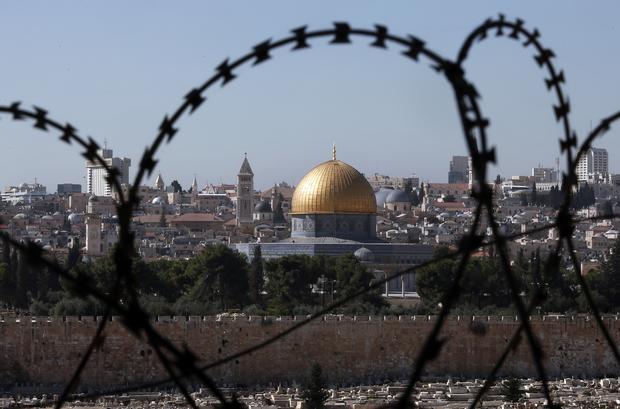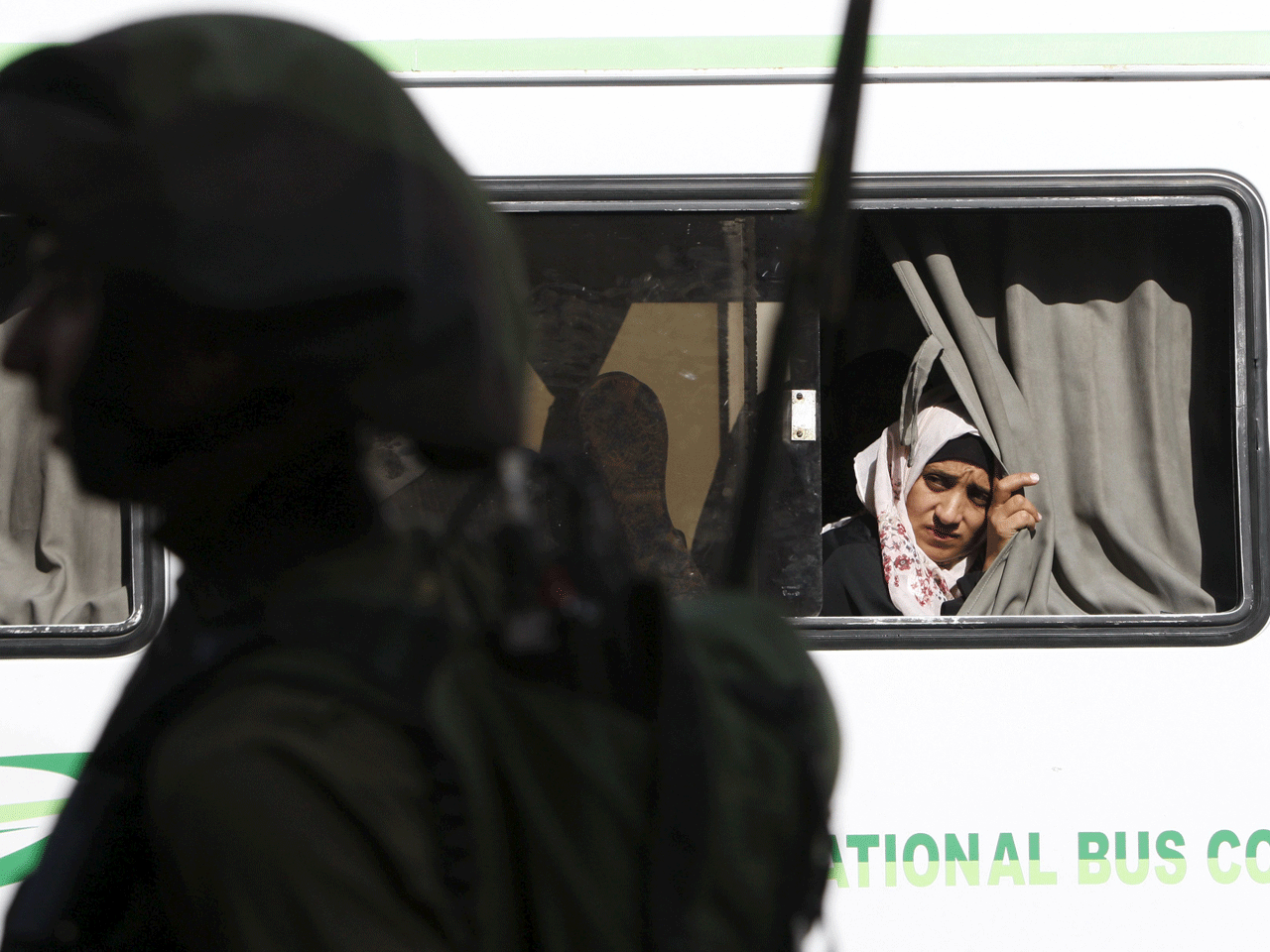Palestinians: Two teens shot, killed by Israeli troops
JERUSALEM - Two Palestinian teens were killed in clashes with Israeli soldiers in the West Bank on Monday as fears spread of a further escalation in violence that has already killed several Israeli civilians and wounded scores of Palestinian protesters over the past days.
The violence has prompted the Israeli government to take unprecedented security measures - as of Sunday, police have barred Palestinian residents of Jerusalem from entering the Old City for two days during a Jewish holiday, in an attempt to curb Palestinian attacks. Palestinians who live, work and study within the Old City, as well as Israelis and tourists, are allowed in.
A Palestinian hospital official says a 13-year-old boy was killed during clashes in the West Bank. A doctor at the Beit Jala hospital says Abdel Rahman Shadi was killed by a live bullet to the chest and another Palestinian protester was wounded in clashes that took place on Monday at Rachel's Tomb in Bethlehem.
The doctor spoke on condition of anonymity because he was not authorized to talk to the media.
The Israeli military said it was checking the report.
An 18-year-old Palestinian was killed earlier on Monday, according to a doctor at Tulkarem hospital in the northern West Bank. The doctor spoke on condition of anonymity because he was not authorized to talk to the media.
The youth's death came as Israeli military said hundreds of Palestinians - at a rally organized by the militant Islamic group Hamas - threw firebombs, rolled burning tires and threw rocks at soldiers who eventually opened fire after using tear gas and stun grenades.
Also, Israeli police said Palestinians threw rocks and firebombs in mostly Arab areas of Jerusalem overnight.
The Red Crescent says 456 Palestinians have been injured in the violent protests over the last two days alone.
Much of the recent violence has stemmed from tensions at the sacred hilltop compound, which has been a frequent flashpoint. Its fate is a core issue at the heart of the Israeli-Palestinian conflict. It is known to Jews as the Temple Mount, site of the two biblical Jewish temples. Muslims revere it as the Noble Sanctuary, where they believe the Prophet Muhammad ascended to heaven.
There have been several days of clashes at the site over the past few weeks as Palestinians barricaded themselves inside the Al-Aqsa mosque while hurling stones, firebombs and fireworks at police. The unrest later spread to Arab neighborhoods of east Jerusalem and to the West Bank.
The violence comes as diplomatic relations between Israel and Palestinian officials appear to be reaching a new nadir. Palestinian Authority President Mahmoud Abbas said last week at the U.N. that he would no longer be honoring his signed agreements with Israel.
The Israeli ban came hours after a 19-year-old Palestinian, Muhannad Halabi, attacked an Israeli family as they walked in the Old City, killing the father, seriously wounding the mother and lightly injuring their 2-year-old toddler before proceeding to stab another Israeli man to death. He then opened fire at tourists and police before he was shot and killed by policemen who had rushed to the scene.
Halabi's comments on Facebook prior to the attack, along with a similar post by another attacker, have added to fears and public debate over whether the specter of another Palestinian Intifada, or uprising, is on the horizon
"What's happening to our holy places? What's happening to our mothers and sisters in the Al-Aqsa mosque," Halabi posted before the stabbing attack. "We are not the people who accept humiliation. Our people will revolt."
The Israeli survivor, Adele Banita, whose husband Aharon was killed and whose two-year-old child was wounded by Halabi, described the horrific assault to Israeli media.
She said she felt something in her back and then saw the Palestinian assailant stabbing her husband before turning round to stab her again.
"There were lots of Arabs around looking ... laughing and smiling," Banita said.
After she tried to help her husband she said she ran for help. Palestinian onlookers "spat at me and slapped me in the face. While the knife was still stuck in me, they slapped me and laughed at me." Banita said she pleaded with the onlookers to help her two-year-old child and was told by them to "die."
Israeli officials, however, insist that Israel is not facing another Intifada but rather a "wave of terror."
The stabbings were the latest in a series of deadly Palestinian attacks. On Thursday, suspected Palestinian gunmen killed an Israeli couple in front of their children as they drove in the West Bank.
An Israel died when his car was pelted with stones last month and there have been numerous incidents of Palestinians attacking Israelis and throwing stones at passing vehicles.
Prime Minister Benjamin convened an emergency meeting of top security officials on Sunday, after which he declared that "additional steps to deter terror and punish terrorists."
Israel has blamed Palestinian leaders for inciting violence over the Jerusalem holy site. Palestinian President Mahmoud Abbas phoned U.N. Secretary-General Ban Ki-moon to "brief him" on the unrest, according to his office.

